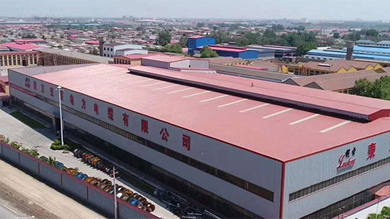Nov . 07, 2024 06:04 Back to list
Understanding the Functionality and Applications of Swing Check Valves in Fluid Systems
Understanding Swing Check Valves Design and Functionality
Swing check valves are essential components in piping systems, commonly used in various industries to prevent backflow and ensure the unidirectional flow of fluids. Their simple design and functionality make them a preferred choice in applications ranging from water treatment facilities to chemical processing plants. In this article, we will explore the mechanics, advantages, and applications of swing check valves, as well as maintenance considerations.
What is a Swing Check Valve?
A swing check valve is a type of valve that opens and closes in response to the flow of liquid or gas and is specifically designed to prevent reverse flow. The valve consists of a disc that swings on a hinge or pivot point, allowing fluid to flow through the valve in one direction. When the flow stops or reverses, the disc swings back to its closed position, effectively sealing the valve and preventing backflow.
Design Features
The primary components of a swing check valve include the body, disc, hinge, and seat. The valve body is typically made of durable materials like cast iron, stainless steel, or PVC, depending on the application and the fluids being transported. The disc, often made from the same material as the body, is engineered to create a tight seal against the seat when closed.
One of the critical design features of swing check valves is their compact structure, which minimizes pressure loss while maximizing flow efficiency. Unlike other check valves, such as lift check valves, swing check valves operate primarily based on the gravitational force acting on the disc. This design allows them to handle larger volumes of fluid with less resistance, making them suitable for high-flow applications.
Advantages of Swing Check Valves
1. Low Pressure Drop Due to their design, swing check valves typically exhibit lower pressure drops compared to other types of check valves, enhancing overall system efficiency.
2. Simplicity and Reliability The straightforward construction of swing check valves means fewer moving parts, leading to increased reliability and reduced maintenance requirements.
swing check valve

3. Versatility These valves are suitable for various applications, including water supply systems, wastewater treatment plants, and industrial processes. They can handle different types of fluids, including corrosive materials, depending on the material of construction.
4. Durability Swing check valves are designed to withstand high pressures and temperatures, as well as the erosive effects of certain fluids, making them a long-lasting solution for many applications.
Applications
Swing check valves are widely utilized across various industries. In water supply systems, they are critical for preventing backflow that could contaminate potable water. In cooling systems, they protect pumps and other equipment from reverse flow, which can cause damage.
In the oil and gas industry, swing check valves reduce the risk of backflow in pipelines, ensuring safety and efficiency in transporting hydrocarbons. They are also used in HVAC systems, where maintaining the correct flow direction is crucial for efficient heating and cooling.
Maintenance Considerations
While swing check valves have a reputation for reliability, regular maintenance is essential to ensure optimal performance. Operators should routinely inspect the valves for wear and tear, particularly focusing on the disc and seat areas where leaks can develop over time. Lubrication of the hinge mechanism may also be necessary to prevent sticking.
Operators should be mindful of the operational conditions, such as the pressure and temperature of the fluids being transported, as these factors can influence the longevity and functionality of swing check valves. Additionally, installing the valves in accordance with the manufacturer’s guidelines will help prevent operational issues.
Conclusion
Swing check valves play a vital role in modern fluid handling systems, providing a reliable solution for preventing backflow and ensuring smooth system operations. With their many advantages and versatile applications, these valves are a critical component in various industries. Proper maintenance and installation will ensure their longevity and optimal performance, making them an invaluable asset in any piping system.
Share
-
Reliable Wafer Type Butterfly Valves for Every IndustryNewsJul.25,2025
-
Reliable Flow Control Begins with the Right Ball Check ValveNewsJul.25,2025
-
Precision Flow Control Starts with Quality ValvesNewsJul.25,2025
-
Industrial Flow Control ReliabilityNewsJul.25,2025
-
Engineered for Efficiency Gate Valves That Power Industrial PerformanceNewsJul.25,2025
-
Empowering Infrastructure Through Quality ManufacturingNewsJul.25,2025